BigPicnic
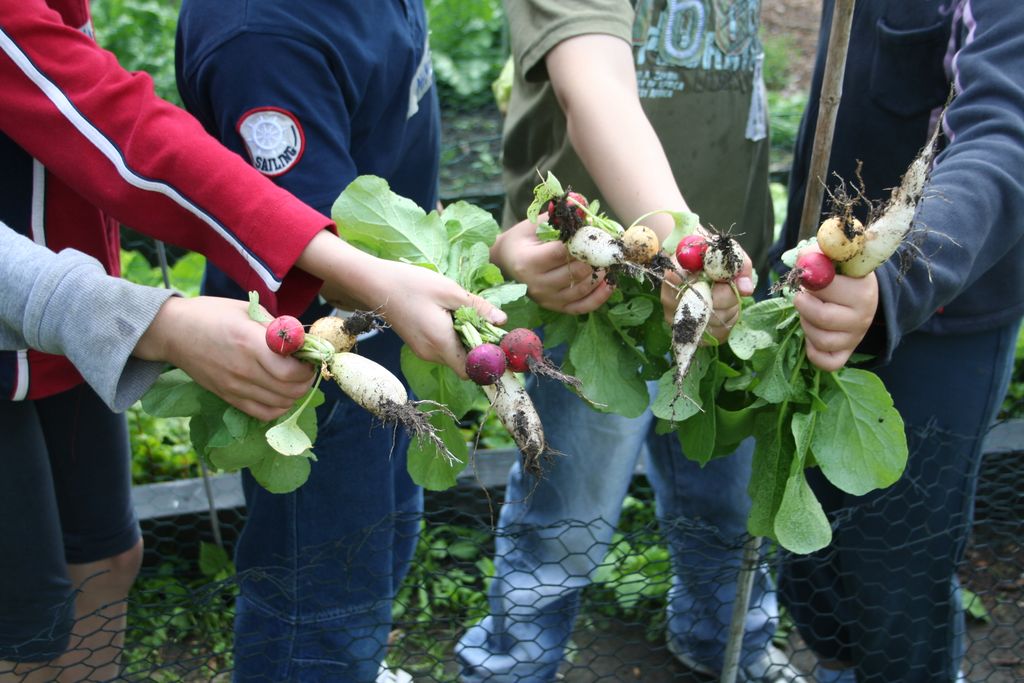
-
Status of project
Completed -
Region
Global -
Topic
Public Engagement
About
How do we ensure our growing population has access to sufficient safe and nutritious food? Will we have fertile enough land to grow food in the future? Is it possible to adapt food production to climate change? BigPicnic aimed to generate debate on all these topics and more, by bringing together the public, scientists, policy-makers and industry to help address the global challenge of food security.
The BigPicnic team involved nineteen Partner organisations, spanning twelve countries across Europe and one in Uganda and was coordinated by BGCI. These Partners used a range of travelling exhibitions, activities, science cafés and participatory events, co-created with local people, to generate dialogue and build greater understanding of food security issues.
This collaborative approach gave a voice to adults and young people on Responsible Research and Innovation, communicating their views to policy-makers, sharing ideas, and encouraging debate on the future of our food.
The University of Warsaw Botanic Garden held a culinary festival as part of their BP activities (Photo by Kamil Zielinski) The University of Vienna Botanic Garden cooking with co-creators (Photo by UNIVIE) Showing diversity in the botanic food garden (photo by Giovanni Bezzi) Credit BGCI/Zoe Irwin Freshly picked radishes (photo by School Biology Centre Hannover)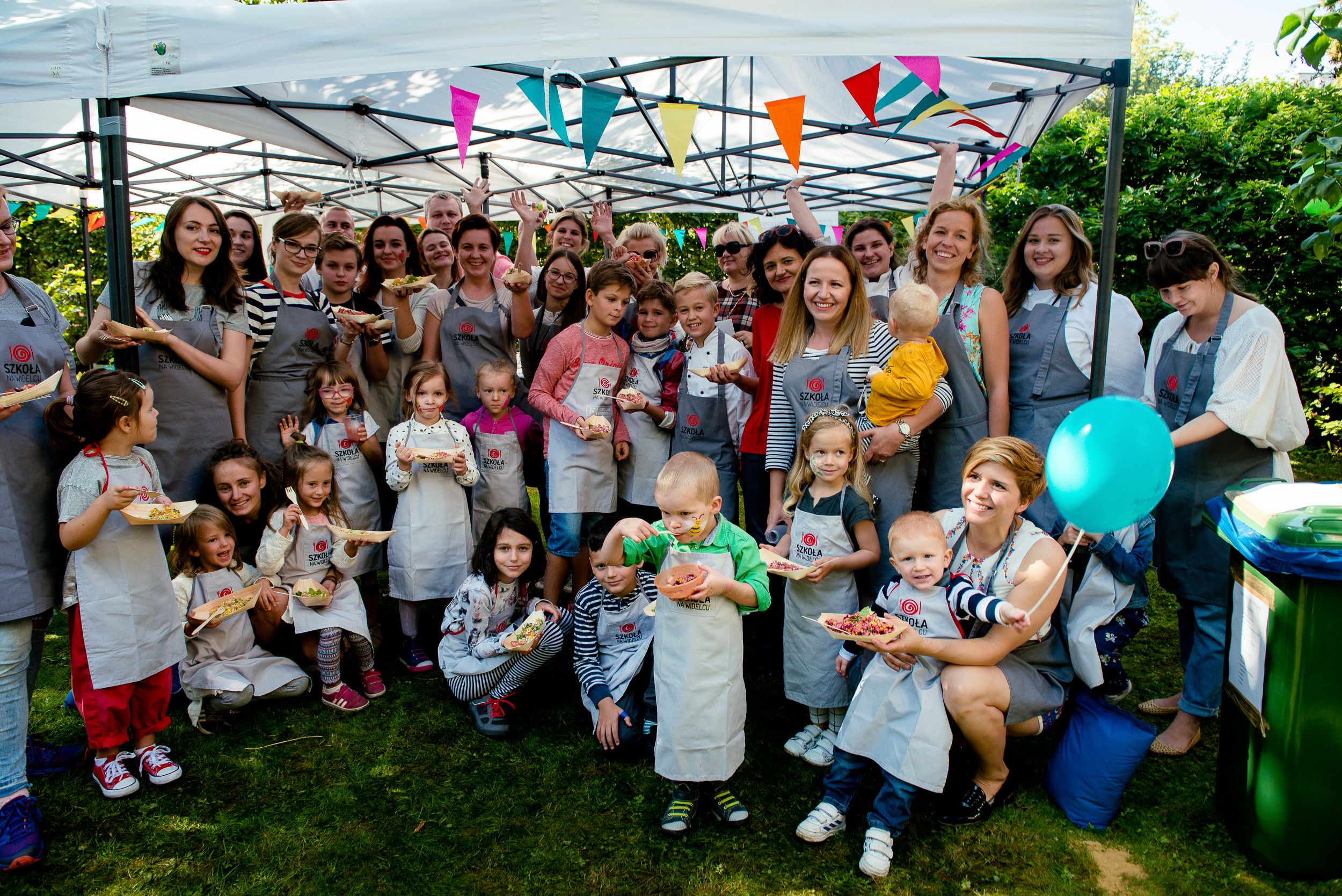
Warsaw Culinary Festival
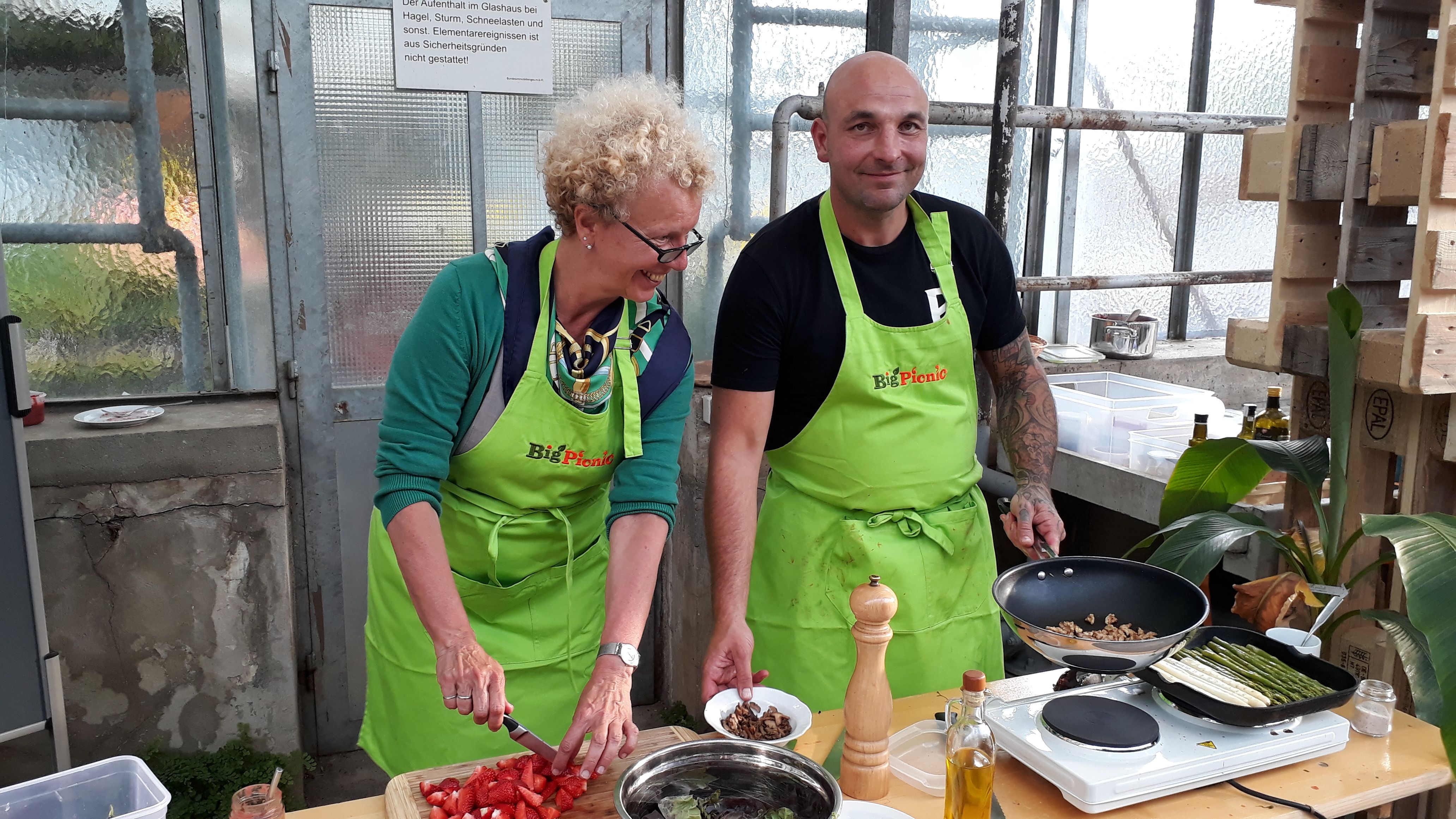
Cooking with co-creators
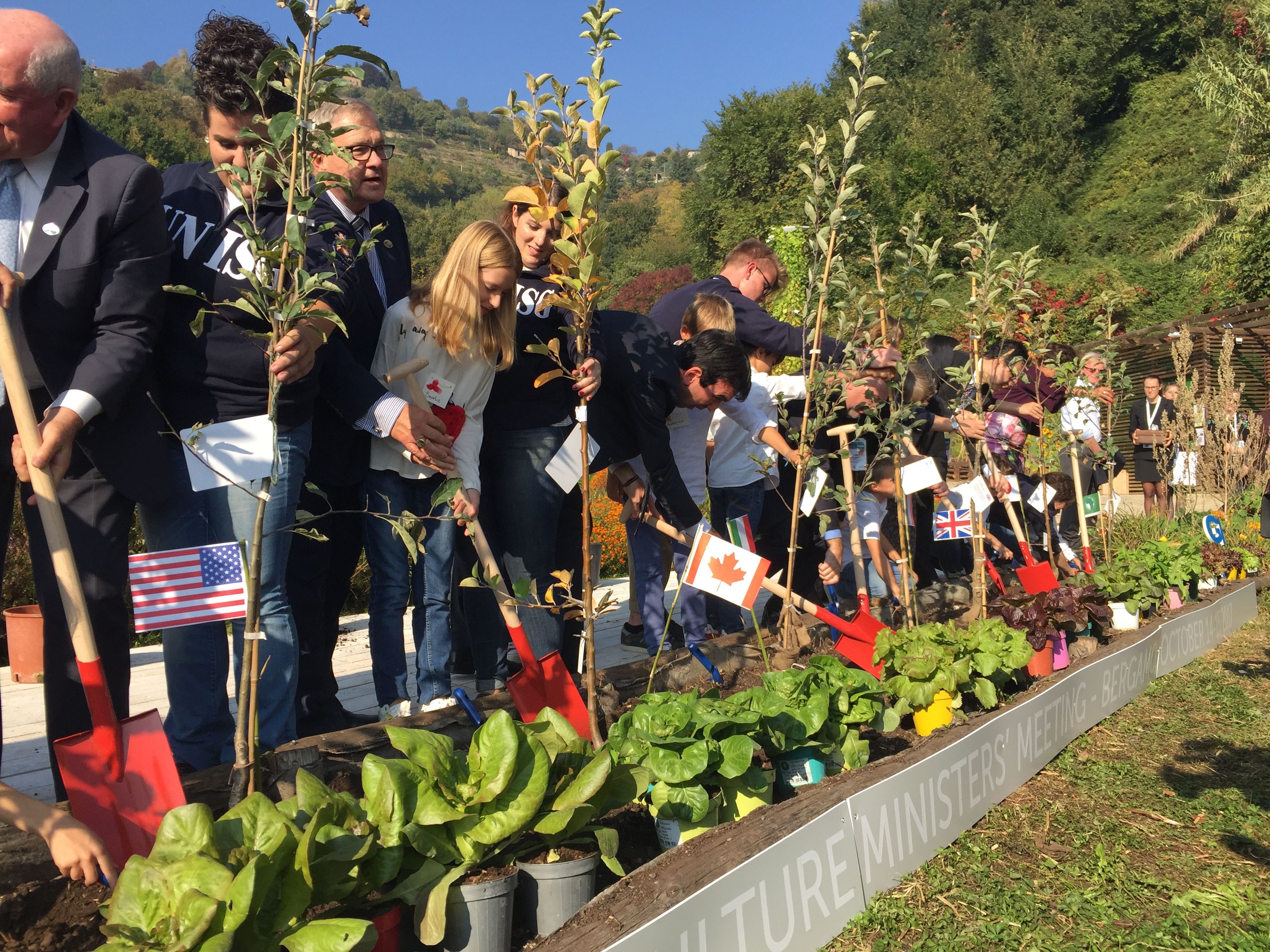
Food diversity
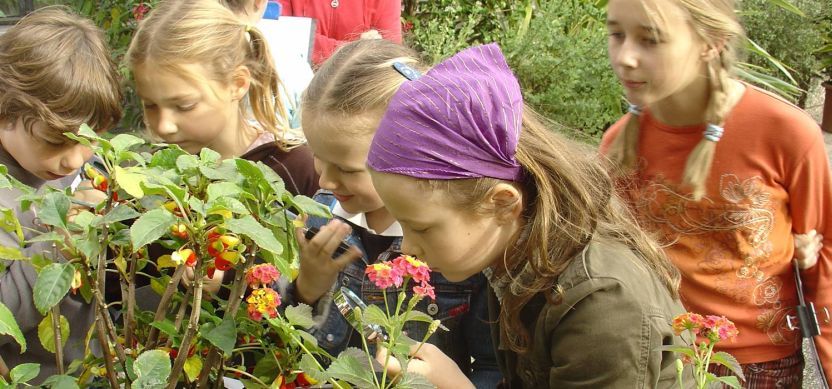
LFU children (BGCI/Zoe Irwin)

Radishes
BigPicnic had seven objectives:
- Increase engagement with local and global food security issues through outreach exhibitions and science cafés among diverse audiences.
- Co-create, with diverse audiences, accessible and novel mechanisms to facilitate interaction and bridge the gap between the public, policy makers and researcher.
- Develop botanic gardens as centres that promote dialogue between public, researchers and policy makers
- Improve the understanding and realization of Responsible Research and Innovation through the provision of best practice case studies for an RRI toolkit
- Utilize the findings of other EU funded projects: INQUIRE, PLACES and VOICES.
- Build the capacity of botanic gardens across Europe to develop and deliver co-creation approaches with their local and regional audiences
- Co-develop tools for measuring the engagement of partners and co-creation teams with RRI and the benefits of the co-creation participatory approach adopted in the project.
What is Food Security?
Food security is one of the greatest challenges facing society today, yet the term ‘food security’ means many different things to different people and in different contexts. According to the FAO: “food security exists when all people, at all times, have physical and economic access to sufficient, safe and nutritious food that meets their dietary needs and food preferences for an active and healthy life”. (World Food Summit, 1996)
To simplify matters, food security can be thought of as an umbrella term for three interconnected concepts: The security aspect focuses on availability and access – ensuring everybody across the world gets enough food to eat. Food safety focuses on ensuring people have healthy, nutritious food that is free from contamination or degradation. Food sovereignty empowers people to make their own choices about the food they eat, for example by buying regional produce or growing their own food. The challenge, therefore, is not just producing enough food but ensuring it reaches those who need it, it is nutritious, and can be grown and distributed in a sustainable manner in the face of a changing climate.
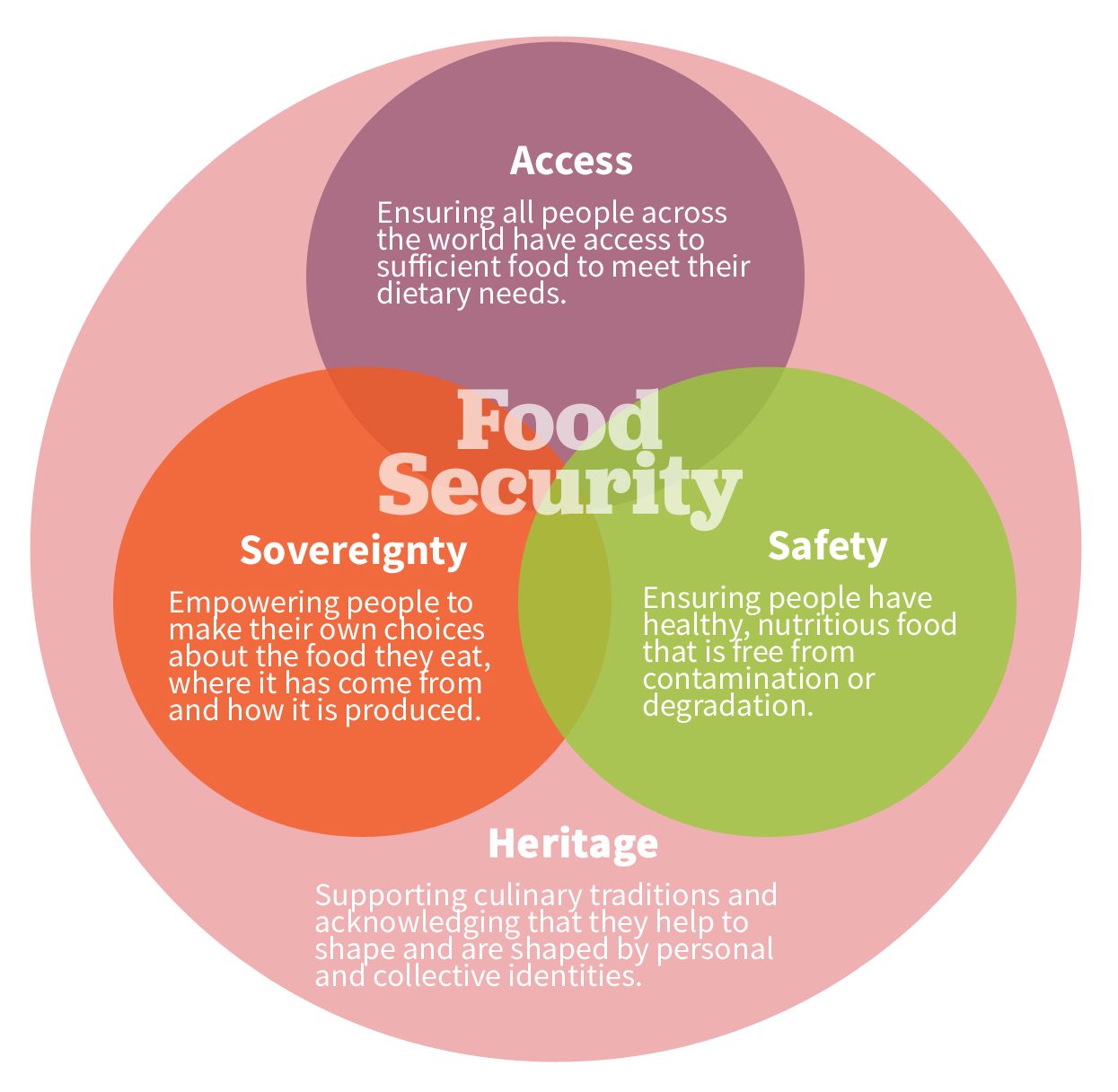
Why botanic gardens?
BigPicnic demonstrated that botanic gardens are spaces where people can engage with, and help develop the solution to, complex and controversial issues in science. Botanic gardens are uniquely placed to address both social and scientific issues surrounding food security. Throughout history, botanic gardens have continuously responded to pressing societal and environmental changes and needs. Their collections of living plants provide an essential resource for scientific research, conservation and public engagement.
By using their sites, skills and expertise in a new way, BigPicnic’s botanic garden Partners have made food security relevant and relatable. They have provided the bridge between policy-makers, farmers and local communities to generate debate on this pressing global challenge.
Co-creation
Co-creation is an innovative and participatory process which aims to create shared ownership of a project between institutions and community partners. Co-creation enables professionals to co-operate with and learn from others, to build a connection between groups that would not normally meet, to raise awareness and sensitivity towards important issues and to build relationships between groups and individuals that will last well beyond the scope of a project.
Co-creation was central to BigPicnic as a strategy for the botanic gardens involved to engage with new and existing communities on the topic of food security. This approach was employed by botanic garden Partners and their audiences to design and develop outreach exhibitions in a variety of exciting forms.
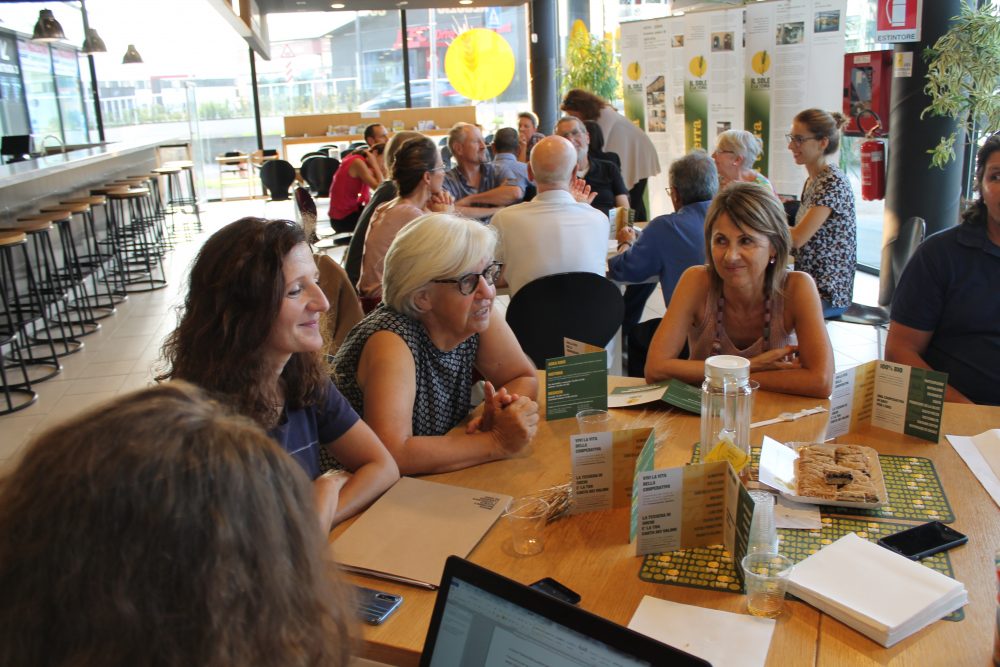
Responsible Research and Innovation
Responsible Research and Innovation (RRI) describes a new approach to research and innovation that aims to align the outcomes of scientific and technological advances with the values and needs of society by involving diverse groups of people, including citizens, researchers, policy-makers and businesses, throughout the entire process.
Botanic gardens already attract, or have access to, many of the diverse audiences which RRI seeks to engage. BigPicnic brought together everyday garden visitors and harder to reach audiences, researchers, policy-makers and industry workers to generate discussion and debate on the topic of food security. By acting as mediators, botanic gardens and other institutions were able to facilitate dialogue and develop a mutual understanding among researchers and visitors of the ways in which different people work and think.
What is Team-Based Inquiry?
Team-Based Inquiry (TBI) is a practical approach to data collection and evaluation, built on a cycle of question, investigate, reflect and improve. While evaluation often focuses on the impact of a project only, TBI gives professionals the opportunity to also reflect on the process and practice that went into its development.
TBI is all about a more participatory way of designing and doing evaluation. Our Partners at University College London (UCL) supported the BigPicnic Partners through training and developing a reflective TBI practice approach. TBI helped BigPicnic Partners to capture conversations between co-creators, the reactions of visitors to the collaborative environment they’d created, and their own reflections on the co-creation process. This enabled BigPicnic Partners not just to ‘do’ but to reflect on their actions throughout the project and involve audiences in the continual improvement of their public engagement activities.
BigPicnic video: Food conversations across continents
Big Picnic policy recommendations
Using the BigPicnic project data, a series of policy briefs were developed. Food production, sustainability and the climate, participation, education and organisational development were all shown to be important in the context of the project and food security. The common thread that united all of these individual areas was heritage and the role that food plays in our individual lives. To address food security, heritage and its overarching influence in all aspects of the debate must be acknowledged.
There are seven BigPicnic policy briefs. Four aim to support policy makers to shape future food policies and funding frameworks and two seek to support informal learning sites to apply the learning that occurred throughout the project. The seventh policy brief focuses on Uganda specifically and uses the data collected from our Ugandan project partner (Tooro Botanical Gardens). To highlight where BigPicnic findings link to existing frameworks and illuminate gaps in current policy, each policy brief maps the BigPicnic recommendations to the most relevant United Nations Sustainability Goals (SDGs) and the European Union’s Food 2030 Priorities.
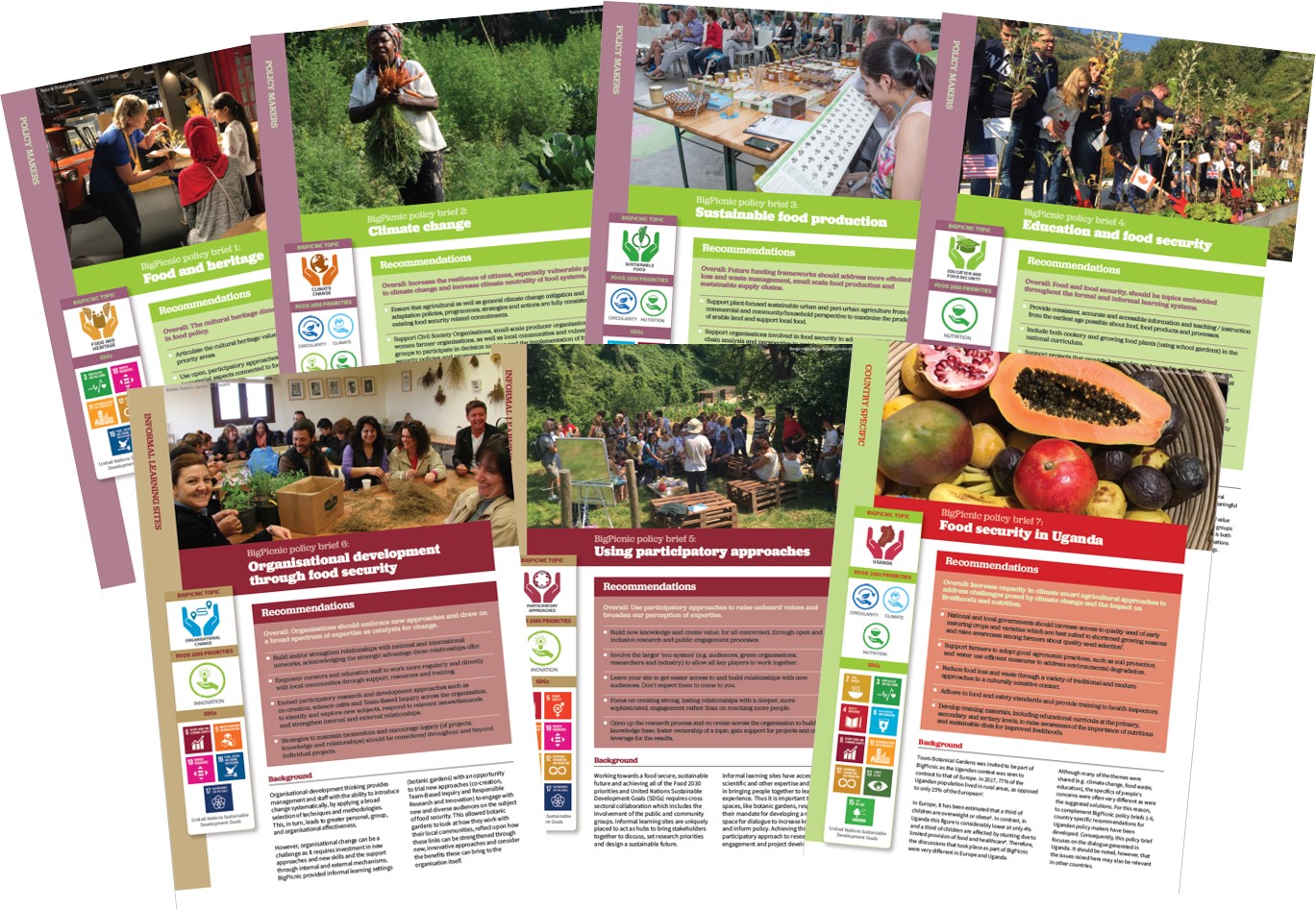
BigPicnic resources
-
BigPicnic Resources
Public Engagement / Video, Publication, Tool / English
